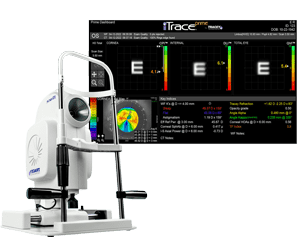Why iTrace?
The iTrace is Beyond Compare
The iTrace is the only device on the market that uses ray tracing aberrometry and placido-based corneal topography to map the sources of errors in the eye and provide a simulation of a patient’s vision.
With a series of unique algorithms and displays, the iTrace Visual Analysis can objectively separate visual performance between the cornea and the lens, allowing doctors to see exactly what their patients are seeing, and use that information to make better treatment decisions.
Regardless of the other technology you have in your practice, the iTrace is essential. While there are other devices on the market that boast they can perform similar analysis, the iTrace is the only piece of equipment that can show you exactly how every patient sees by measuring the eye in the same way that the eye uses light.
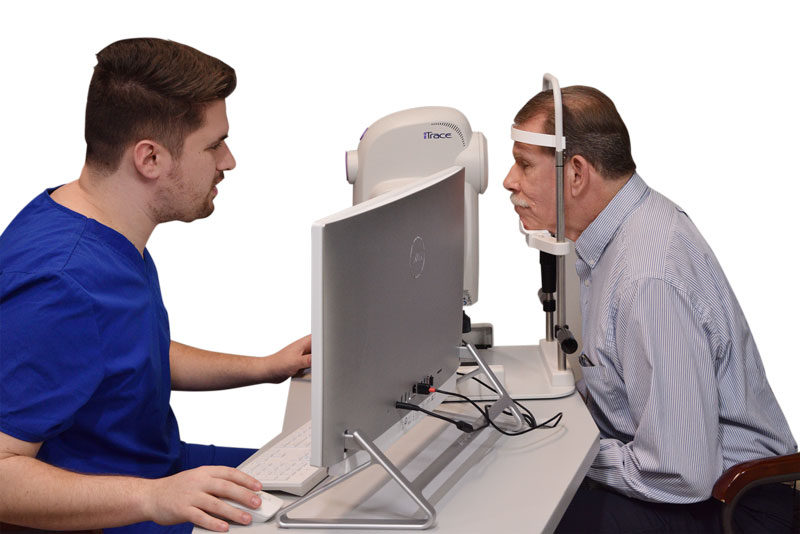
The iTrace Is Beyond Compare Because It Powers…
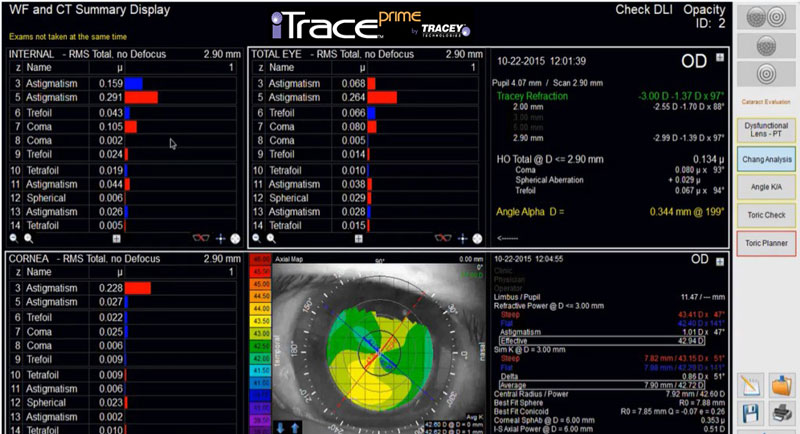
It’s the best way to get a complete picture of what’s occurring when a patient isn’t satisfied with their vision.
Better education. With the iTrace’s Dysfunctional Lens (DLI), Corneal Performance (CPI), and Quality of Vision (QVI) indices, you can understand and track the exact source of any vision issues while showing your patients the difference between their internal, corneal, and total quality of vision. This unique display allows you to objectively quantify vision loss over time and helps patients understand their eyesight in a brand-new way.
It’s the best way to educate your patients about their treatment options and communicate the value of a premium cataract procedure.
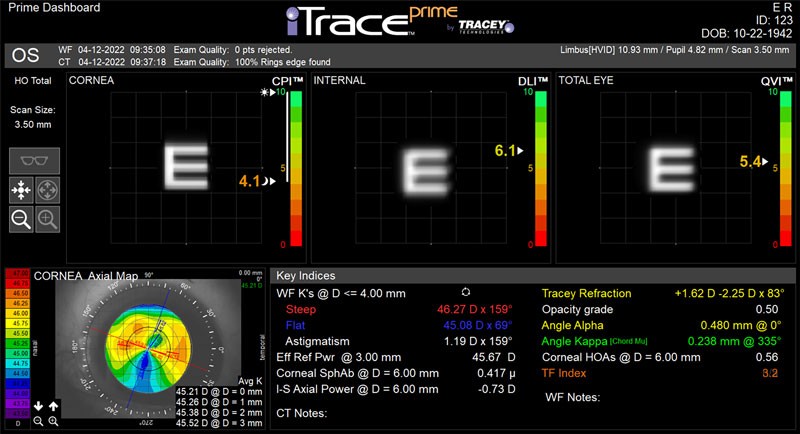
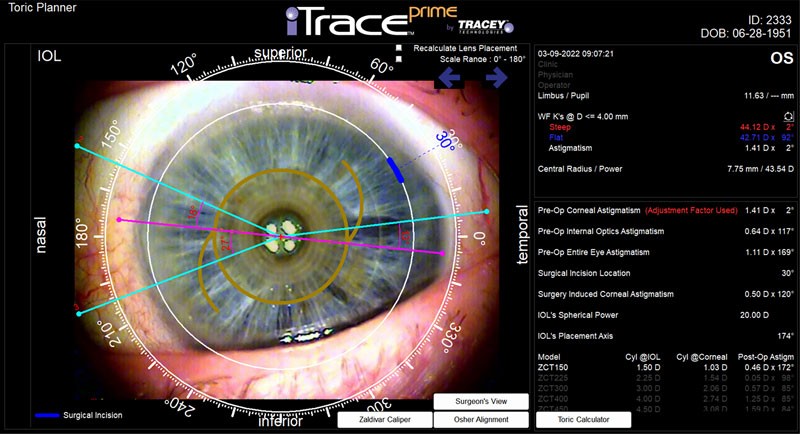
Better decisions. Only when you have the most complete set of information at your fingertips can you be completely sure you’re making decisions in the best interests of the patient.
The Chang Analysis provides a precise calculation of higher and lower order aberrations. The proprietary Tear Film Index (TFI) assesses the stability of the patients’ ocular surface, ensuring that the conditions for a successful refractive procedure are being met. The iTrace’s unique Prime Dashboard provides all the information you need to plan surgery all in one display.
With the iTrace, you have everything you need to make decisions that result in the best possible outcomes for your patients.
Better outcomes. The information provided by the iTrace’s best-in-class diagnostic tools can make it easy to provide the best possible outcomes from surgery.
The iTrace includes a Toric Planner, which uses precise wavefront Ks, optical alignment angles, and printable pictures to help you achieve ideal lens placement during surgery. Likewise, the Toric Check provides post-operative guidance on toric axis location without the need for dilation. Because of its proprietary technology, the iTrace is the only device that can accurately scan a post-operative patient’s vision.
It’s the best way to ensure precision during surgery and to achieve patient satisfaction after lens replacement.
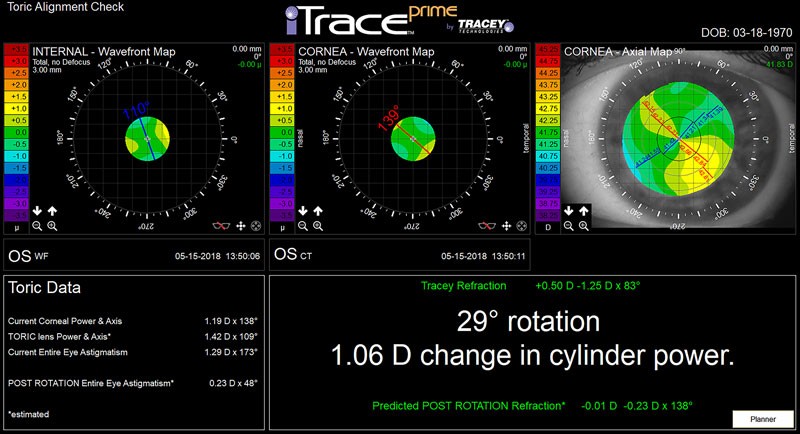
See How We Stack Up!
Since the iTrace functions as a 5 in 1 corneal topographer, diagnostic aberrometer, autorefractor, keratometer, and pupilometer, there are several devices that do a portion of what the iTrace does. To see how the iTrace specifically compares to (and complements!) tools like the Pentacam or the Galilei, schedule a demo with a member of our team.
The iTrace vs The OPD III
As clinical comparisons of the underlying technology suggest: not that similar. Most glaring is the inaccuracy of Dynamic Skiascopy when it comes to identifying critical higher order aberrations (HOAs) compared to the Ray Tracing aberrometry of the iTrace. Read more about the differences between the two devices below:
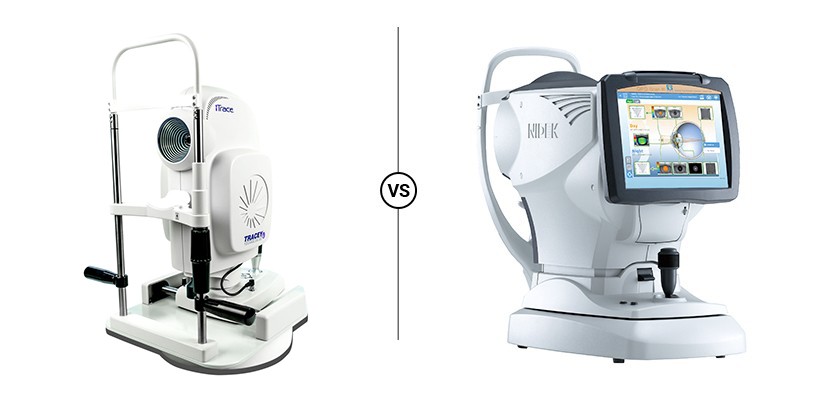
THE ITRACE VS THE PENTACAM®️️️ AXL WAVE
First, the device uses Hartmann-Shack aberrometry, which is far inferior to Ray Tracing in terms of accuracy and reliability. H-S has rarely been used to assess candidates for cataract surgery and for good reason. This is just one of the reasons why the iTrace is superior — click below to read a direct comparison of the two devices:
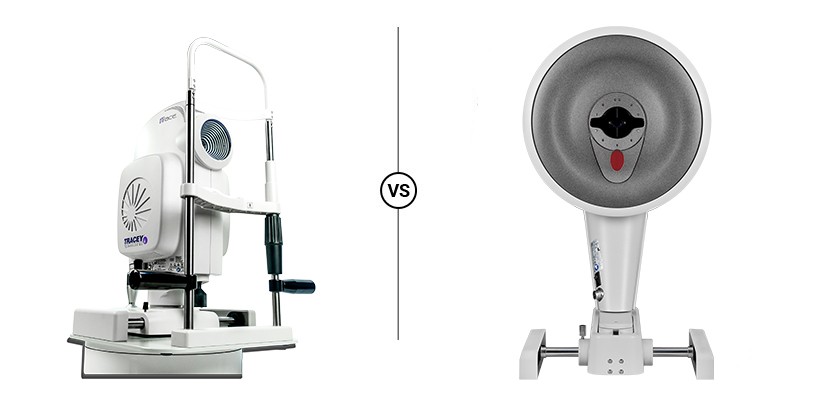
Working with Tracey Technologies
While our current technology is unsurpassed, Tracey Technologies is continuously working to develop new, practical features to enhance the iTrace. When we update software, it can be easily downloaded on your existing hardware. We are proud to offer world-class technical support and practice building resources to iTrace users across the globe.
To learn more about bringing the iTrace into your practice, you can contact us to request more information or schedule a demo.
